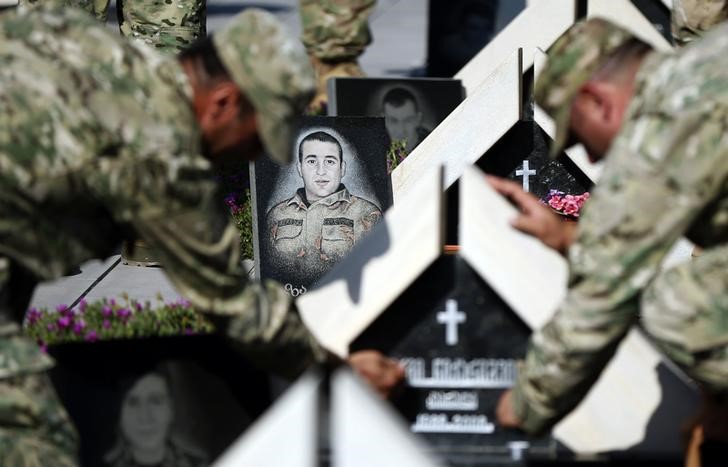By Thomas Escritt
AMSTERDAM (Reuters) - The International Criminal Court said on Thursday that its prosecutor planned to investigate possible crimes committed in the 2008 conflict between Russia and Georgia, bringing Moscow, an opponent of the court, into its sights for the first time.
Judges must now decide whether to permit the move, which would pit non-member Russia against the European-backed permanent global war crimes court at a time when east-west tensions run higher than at any time since the Cold War.
The Hague-based court is already considering whether to open an investigation into crimes committed in Ukraine, another West-leaning former Soviet republic which is fighting Moscow-backed separatists in its east.
In a statement, the court said Prosecutor Fatou Bensouda had concluded there was a "reasonable basis to believe" crimes had been committed during the short war over the Russian-backed breakaway Georgian province of South Ossetia.
Seven years after Russia's intervention to prop up the statelet, recognised by just a handful of countries, Moscow and Tbilisi are still far apart, despite a long-running series of international talks in Geneva aimed at reaching a settlement.
"We experienced a serious violation of Georgia's territorial integrity and sovereignty. There can be no other understanding of this event," Georgian Foreign Minister Giorgi Kvirikashvili told Reuters after a meeting in Brussels.
Bensouda's move comes as Russia seeks to become a more active global diplomatic and military player, launching air strikes in support of beleaguered Syrian President Bashar Al-Assad, defying the broad Western consensus that he should go.
Kvirikashvili criticised Russia's decision to sign cooperation treaties with South Ossetia and Abkhazia, another Russian-backed region in Georgia, in defiance of Tbilisi's wishes.
Any investigation would look at possible war crimes or crimes against humanity committed by both sides in the August 2008 clash, in which hundreds died and hundreds of thousands were displaced.
In 2009, rights group Human Rights Watch said crimes had been committed on all sides during the week-long conflict, when Moscow came to the aid of primarily Russian-speaking separatists.
Set up in 2002 to investigate the most serious international crimes, the court is now showing a readiness to tackle politically sensitive conflicts involving powerful actors after a decade in which it was criticised for being involved only in crimes committed in Africa.

This year, the court announced an examination of the Israeli-Palestinian conflict, bringing one of the world's longest-running and most intractable conflicts into its sights.